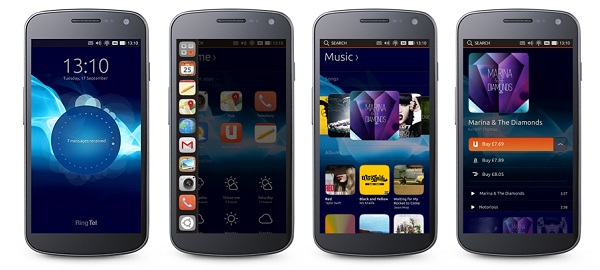The software development company best known for its Debian-based Linux operating system Ubuntu respected the promise it made last year, and announced that it would launch the first Ubuntu phone at the Mobile World Congress, next week.
Canonical failed to raise the funds for its ambitious Ubuntu Edge on Indiegogo last year, but that didn’t stop the British company from pursuing its dreams. They promised that they would make Ubuntu phones in 2014, and next week we’re going to see the first results. Smartphones running Ubuntu Touch will be made by Meizu, a pretty popular Chinese smartphone manufacturer, as well as by BQ, Spain’s second largest manufacturer of unlocked smartphones.

Images of a Meizu smartphone running what was believed to be Ubuntu Touch were leaked a few weeks ago, and the fact that Canonical now confirmed that the Chinese manufacturer will be making one of the Ubuntu phones stresses the authenticity of the leaks. Unlike Mozilla and its Firefox OS, Canonical wants to have a different approach with Ubuntu Touch smartphones. Firefox OS devices are low-end, thus far, but Canonical wants to take on Android devices directly, so it announced that the Ubuntu phones will be mid-range and high-end devices capable of satisfying the needs of the ones looking for performance.
Mark Shuttleworth, the founder of Canonical, stated in an interview with CNet that “While we’re happy to work with household names, we want to be involved with partners for whom we can be a significant part of their story, rather than being appended to the more complicated story of other brands.”
Meizu only makes one line of smartphones, MX3 being the most recent and probably the most popular. BQ, on the other hand, makes Android smartphones, tablets and even e-book readers, but Canonical emphasized how important it is that the Spanish manufacturer has experience in making dual-SIM phones, suggesting that the Ubuntu ones may come with such a feature.
The way I see it, the only problem Canonical might have is the app ecosystem. There are plenty of apps for the desktop version of Ubuntu, but convincing the developers to port them to mobile devices may not be very simple. What I’m saying is that I’m afraid that the Ubuntu phones will suffer the same fate as the ones running Windows Phone.
Be social! Follow Walyou on Facebook and Twitter, and read more related stories about Ubuntu Touch coming to Nexus devices and Canonical’s promise of making Ubuntu phones in 2014.

















